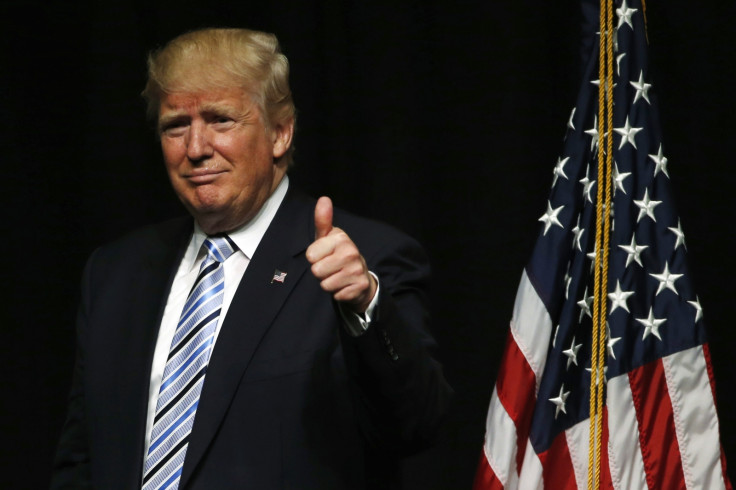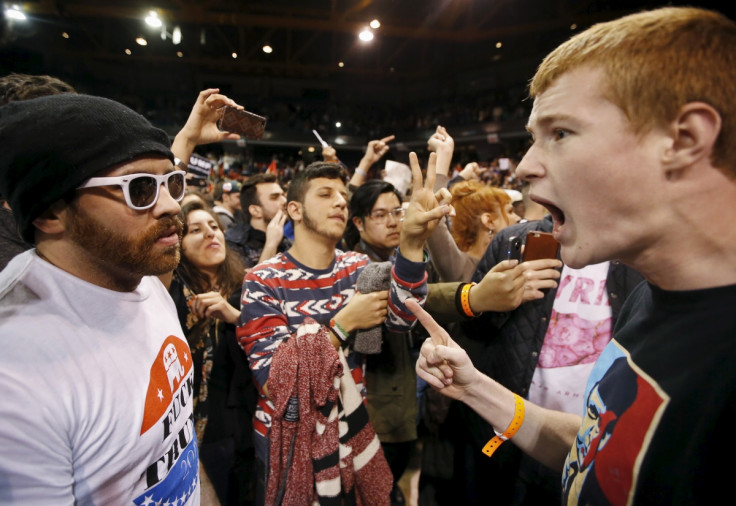Generation Trump: Can 'the Teflon Don' stick with his wild rhetoric in the battle for the presidency?

The US presidency is won by the candidate who can best repackage and resell the American Dream.
Obama's "Yes We Can" mantra captured a generation in 2008 while the more staid "Compassionate Conservatism", catapulted George Bush into the White House eight years earlier.
First used by Ronald Reagan in 1980, the catchphrase Make America Great may not be original, but the type of language Donald Trump uses certainly is - at least for someone running for office rather than ranting on a bar stool.
On Mexican immigrants, he said: 'They're bringing drugs,' crime and are 'rapists'; on followers of Islam, he called for a: "A total and complete shutdown of Muslims entering the United States" and on his popularity he even said: "I could shoot people and I wouldn't lose voters", amid a sensitive public debate on gun control. Is this foot in mouth or tongue in cheek?
Indeed, nothing has been able to take the shine of the Trump project and despite a barrage of criticism at home and abroad, from the media and even the Republican party itself, not a single argument or denouncement has been able to stick and upend the unprecedented political juggernaut now roaring along the road to the White House.
"It is chaos theory implemented into the political system," says Ian Scott, author of American Politics in Hollywood Film, a book which looks at how image shapes politics.
"It seems so kind of random that there can't be any kind of strategic plan, and yet one gets the idea that in some ways, there are clearly calculated messages and soundbites that come out at clear moments."
Scott was in Chicago in March for the Trump rally that was cancelled after protesters packed the arena where the Republican frontrunner was due to speak, resulting in a mini riot.
"The news outlets were condemnatory to start with but somehow that very quickly turned itself around to ask questions like: Why are these people so angry? Somehow he managed to turn what ought to be a severe political hurdle to his advantage. The Trump campaign may have decided that there is virtually no publicity that is bad publicity," Scott, who is also a senior American politics lecturer at Manchester University, told IBTimes UK.
Being the anti-establishment figure is not the only reason behind his success. His celebrity works for him too but he uses it in a different way to other celebrity-turned-politicians like Sonny Bono (singer and US Congressman) Arnold Schwarzenegger (Governor of California) and of course Reagan himself.
"Those figures back then had to play the game to a certain extent. You had to do certain manoeuvres to make that celebrity count - raise money, make speeches, fall in line with the establishment.
"Trump has completely eviscerated all that and written his own rules. Maybe that is either his genius or his look. He thought: Why not? People are not listening to the political establishment anyway."
Grievance against that establishment has also worked for Bernie Sanders whose plain speaking has helped his bid for the Democrat ticket, amid uncertainty over Hillary Clinton's fitness for office as she is embroiled in controversy over her email practices.
Conciliatory in Cleveland?
Now that Trump has passed the 1,238 delegates required, a lot hinges on how a fractured Republican party, whose officials grudgingly accept he is their candidate, can be reunited. Much will depend on the speech he makes at the convention in Cleveland, Ohio, on 21 July and whether it signals a change of tack to unify the party.
Ian Scott says: "He will have to be conciliatory. If he is not, it will be either signing his obituary there and then and the Democrats can say they have no chance or it will be the single biggest media story for the next three or four months."

Trump's social media campaign is streets ahead of his fellow Republican candidates. More than eight million Twitter followers, millions of Facebook users, and a liberal use of Instagram and Vine, has seen him get the kind of media coverage that his rivals had to spend millions on.
However that can only go so far and experts expect a move towards the tried and tested media outlets of past elections.
Michele Swers, professor of American government at Georgetown University, said Trump is starting to shift to more traditional campaign measures by hiring a different campaign manager in Corey Lewandowski and starting to set up fundraising committees.
"Trump is a media personality so the whole nature of his campaign is different than a traditional campaign. So far he has run it through media and Twitter. He made a big show of the fact that he didn't have a pollster until recently. He said he could do it himself.

"He made a big thing about how nobody was buying him and he was self-funded. He is now making moves towards what you would see in a traditional campaign," Swers said.
All eyes will be on the approach of the Trump team of Lewandowski, chief policy adviser Sam Clovis and spokeswoman Katrina Pierson.
Their job is to sell their man to the country, but first, the Republican National Committee chairman Reince Priebus has the equally tough task of selling Trump to his own party.
Professor of modern American history at Sussex University, Clive Webb says that Trump took an important step in trying to make peace with Fox News' Megyn Kelly, about whom he made lurid and disparaging comments. But there is a limit to how much his approach can mellow in the coming months.
"He is in a difficult situation electorally because he can't pull back too much from some of the claims he has made without alienating white working class base. At the same time he will need to recruit large segments of the electorate he has alienated."
This could mean it will be a tricky balance for Trump to strike. A 180 degree turn in his tone between July and November is unlikely but to bring on board women and minorities, he has to square the circle before he can consider getting the decorators into the Oval Office.
"If he is seen to be reneging on the kinds of commitments like the building of the wall between Mexico and the States he is will alienate the very people who put him in the first place." Webb said.
This is part of a week-long series about Generation Trump by IBTimesUK.
© Copyright IBTimes 2025. All rights reserved.






















